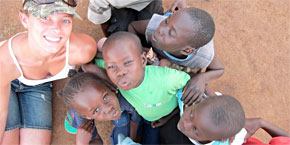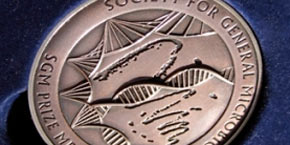| ISSUE 06, 2011 Events Family Science Show Research Stock Migrations Major Challenge for Fisheries | Warming, Predation Could Accelerate Biodiversity Loss Shop Buy Science Swag Online Class Connections From Ballet to International Health |
 |
UBC Science Connect |
| NEWS AND EVENTS FOR UBC SCIENCE ALUMNI | VIEW HTML VERSION |

|
Lava Fingerprints Reveal Differences Between Hawaii's Twin PeaksHawaii's main volcano chains--the Loa and Kea trends--have distinct sources of magma and unique plumbing systems connecting them to the Earth’s deep mantle, according to UBC research published in this month's issue of Nature Geoscience. The study is the first to conclusively relate geochemical differences in surface lava rocks from both chains to differences in their deep mantle sources. "We now know that by studying oceanic island lavas we can approach the composition of the Earth's mantle, which represents 80 per cent of the Earth's volume," says UBC geoscientist and CRC Chair Dominique Weis. "It also implies that mantle plumes indeed bring material from the deep mantle to the surface and are a crucial means of heat and material transport to the surface." |


Actions and Reactions:
|
 |

UBC Science Alumnus Named Canadian Innovator of the Year
Physics and Astronomy alumnus Geordie Rose, co-founder of the quantum computing start-up D-Wave Systems, has been named Innovator of the Year by the Canadian Innovation Exchange. The inaugural title, given in recognition of the most compelling business or technology created by a Canadian, was awarded this November. Rose earned his PHD from UBC in theoretical physics in 2000. The Burnaby-BC-based D-Wave, where Rose serves as chief technology officer, sold one of the world's first functional quantum computing systems to Lockheed Martin for approximately $10-million earlier this year. "The difference in capability is such a vast chasm that we don’t have words in the English language that properly describe how powerful these things will be," Rose said in a recent interview with the Financial Post. |

Stock Migrations Signal Major Challenges for Fisheries |
|
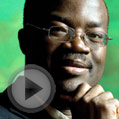
|
UBC's Rashid Sumaila discusses new results in the journal Nature that paint a bleak future for the fishing industry. Sumaila and co-authors found some fish species are relocating to temperate waters like those on Canada's coasts, while species currently here move north to even cooler waters. "Climate change is only going to complicate our problems,” Sumaila told CBC Radio. "There is overfishing. It's fundamental that we deal with that." |

Combination of Warming, Predation Could Accelerate Marine Biodiversity Loss |
||
|
The biodiversity loss caused by climate change will result from a combination of rising temperatures and predation--and may be more severe than predicted, according to a new study by UBC zoologist Christopher Harley. Harley surveyed the upper and lower temperature limits of barnacles and mussels from the cool west coast of Vancouver Island to the warm shores of the San Juan Islands, where water temperature rose from the relatively cool years of the 1950s to the much warmer years of 2009 and 2010. "Rocky intertidal communities are ideal test-beds for studying the effects of climatic warming," says the associate professor of zoology at UBC and author of the study, published this November in Science. |
 |
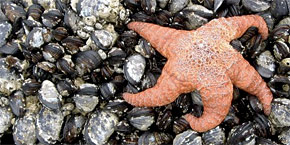
"Many intertidal organisms, like mussels, already live very close to their thermal tolerance limits, so the impacts can be easily studied." At cooler sites, mussels and barnacles were able to live high on the shore, well beyond the range of their predators. However, as temperatures rose, the were forced to live at lower shore levels, placing them at the same level as predatory sea stars. |

Just in Time for the Holidays: Buy Science Swag Online |
|||
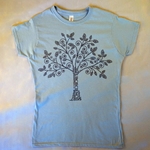
|
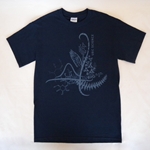
|

|
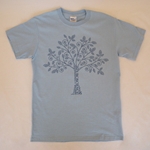
|
| Light blue women's. | Dark blue men's. | Water bottle. | Light blue men's. |


From Ballet to International Health
Four years ago Rebecca Gordon (BSc, Microbiology and Immunology, 2011) had set her sights on a career in contemporary ballet. Little did she know that four years later she would have a very different passion—international public health. As part of her degree, Gordon worked with a small, student-run non-profit, Global Initiative for Village Empowerment in Kenya, on their HIV/AIDS education and prevention project. Gordon taught life skills workshops to children in grades six through eight on topics such as condom use, HIV and voluntary counselling and testing, with the goal of increasing awareness, demolishing misconceptions and eliminating stigma. "I came home from Kenya with a new appreciation for the severity of the HIV epidemic in sub-Saharan Africa and the logistical and cultural barriers to prevention, diagnosis and treatment of HIV/ AIDS," says Gordon. "I'm now the co-team leader of the GIVE HIV/AIDS Education Team and, together with new volunteers, am continuing to expand our projects in the Ojola School Zone. We're very excited about the expansions of the project that are now underway, including an after-school Girl’s Club Project." Now back from Kenya, Gordon is working as a research assistant with UBC PRE-EMPT, an international maternal health research project. The work allows her to learn the logistics involved in planning, coordinating and executing an international public health research project. She plans to continue her education with a master’s degree in international public health as well as medical school. |
 |

UBC Microbiologist Wins UK Society MedalJulian Davies, professor emeritus with Microbiology and Immunology, has been awarded the Society for General Microbiology Prize Medal. The honour recognizes a microbiologist of international standing whose work has had a far-reaching impact beyond microbiology. Early in his career, Davies and colleagues identified how major classes of antibiotics kill bacteria. His more recent work has focused on isolating antibiotics from natural sources, understanding the functions of antibiotics in nature, and studying antibiotic resistance. Botany, Zoology Researchers Named to Royal Society Math Rising Star Recognized Chemistry Head Earns Killam for Graduate Mentorship |

Beaty Biodiversity Museum Jumping Spider |
|

|
After a national contest that generated over 800 entries, a jumping spider discovered in Eucador by Beaty Biodiversity Museum scientific director Wayne Maddison has been named Lapsias lorax. "It's perfect," says Maddison. "Dr. Seuss’s Lorax character has a prominent yellow mustache just like the spider, and the Lorax advocated for the preservation of trees, reflecting the Museum’s focus on biodiversity." Lapsias is the genus classification given to all spiders. |

 | ||
You're receiving Science Connect because, as a UBC Science alumni or supporter, you've given the university permission to contact you. And while we hope you find our e-magazine interesting, we take your privacy seriously, and have made it easy for you to: | ||
 |
||

 |
| © 2011, UBC Faculty of Science | Privacy | Update your contact information |

